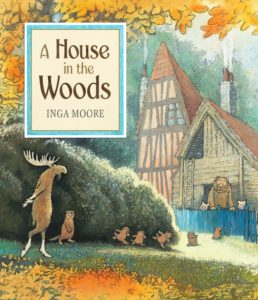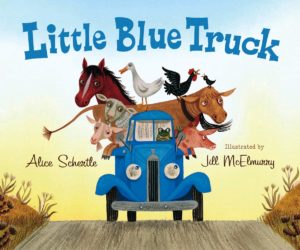3 Tips for Parents: How to Raise a Word Lover
January 14, 2019 | Brain Development, Early Literacy, Help Your Child Get Ready to Read, Tips
Parents and caregivers love to share funny things their children say. My toddler has been asking me all week to be his “awe-dance” (audience) and my five-year-old’s latest excuse to avoid bedtime is that he’s “dehydrated.” Learning new words is not just cute, though; a large vocabulary is a powerful predictor of school success, and parents have a significant impact on children’s word learning from infancy onwards.1
Here are a few tips to help make vocabulary learning a playful, positive family habit.
Foster a Love of Words
Being curious about words can prime your child to notice and learn new words.2 Actively spark your child’s delight in words by playing silly word games and using rich language in your everyday conversations, like “Our cart is crammed full of groceries today!” or “Are you exhausted after all that climbing?”. Pause to marvel at appealing phrases in books. When your child asks about an unfamiliar word, praise his interest and take the time to respond.
Teach New Words During Reading
 As you read aloud, teach new words in a relaxed, natural way. Experts suggest simply pausing to give a brief, child-friendly definition of an unfamiliar word. Hone in on a few words that are important for understanding the story and that your child is likely to hear in multiple contexts.3 You might use the picture to explain hiding when you read Baby Talk to your baby and playfully hide under a blanket. When you read A House in the Woods to your preschooler, you might explain that Moose’s idea to build a house is brilliant because it’s “really smart” and that a bill “tells how much someone has to pay” when the animals owe the beavers peanut butter sandwiches for their construction services. You might mention a new word not written in the text. The animals’ antics in Cows in the Kitchen are perfect examples of mischief!
As you read aloud, teach new words in a relaxed, natural way. Experts suggest simply pausing to give a brief, child-friendly definition of an unfamiliar word. Hone in on a few words that are important for understanding the story and that your child is likely to hear in multiple contexts.3 You might use the picture to explain hiding when you read Baby Talk to your baby and playfully hide under a blanket. When you read A House in the Woods to your preschooler, you might explain that Moose’s idea to build a house is brilliant because it’s “really smart” and that a bill “tells how much someone has to pay” when the animals owe the beavers peanut butter sandwiches for their construction services. You might mention a new word not written in the text. The animals’ antics in Cows in the Kitchen are perfect examples of mischief!
Practice Words Through Conversation and Play
 Children need to revisit words again and again to successfully integrate them into their word banks.4 Use real-life examples, play, and other books to help your child build a mental “web” of information about a new word. For instance, brainstorm together various times when you could receive a bill. Play “restaurant” or “store” to practice related words, like total, change, and expensive. Or, notice when characters in other books get into mischief and act out stuffed animals causing trouble. If you read Little Blue Truck and tell your child that swerve means “turn quickly,” encourage your child to make her toy cars swerve or swerve around obstacles with a push-toy or tricycle. Keep it fun and celebrate your child’s brilliant growing vocabulary
Children need to revisit words again and again to successfully integrate them into their word banks.4 Use real-life examples, play, and other books to help your child build a mental “web” of information about a new word. For instance, brainstorm together various times when you could receive a bill. Play “restaurant” or “store” to practice related words, like total, change, and expensive. Or, notice when characters in other books get into mischief and act out stuffed animals causing trouble. If you read Little Blue Truck and tell your child that swerve means “turn quickly,” encourage your child to make her toy cars swerve or swerve around obstacles with a push-toy or tricycle. Keep it fun and celebrate your child’s brilliant growing vocabulary
The children’s book examples in this post are all titles distributed by Raising Readers.
Lindsay Barrett is a teacher, literacy consultant and parent of three word-loving young boys. She can be reached at lindsayabarrett@gmail.com.
Post References and Additional Resources
- Hart, B., & T.R. Risley. 2003. “The Early Catastrophe: The 30 Million Word Gap by Age 3.” American Educator 27 (1): 4–9. www.aft.org/pdfs/americaneducator/spring2003/TheEarlyCatastrophe.pdf.
- Graves, M. F., and Watts-Taffe, S. M. (2002). The place of word consciousness in a research-based vocabulary program. In A. E. Farstrup and S. J. Samuels (Eds.), What Research Has to Say about Reading Instruction (pp. 140–165). Newark, DE: International Reading Association.
- Beck, I. L., McKeown, M. G., and Kucan, L. (2013). Bringing words to life: Robust vocabulary instruction. New York: Guilford.
- Neuman, S.B and Wright, T.S. (2014) “The Magic of Words: Teaching Vocabulary in the Early Childhood Classroom.” American Educator 38 (2): 4-13. http://www.aft.org/sites/default/files/periodicals/neuman.pdf
